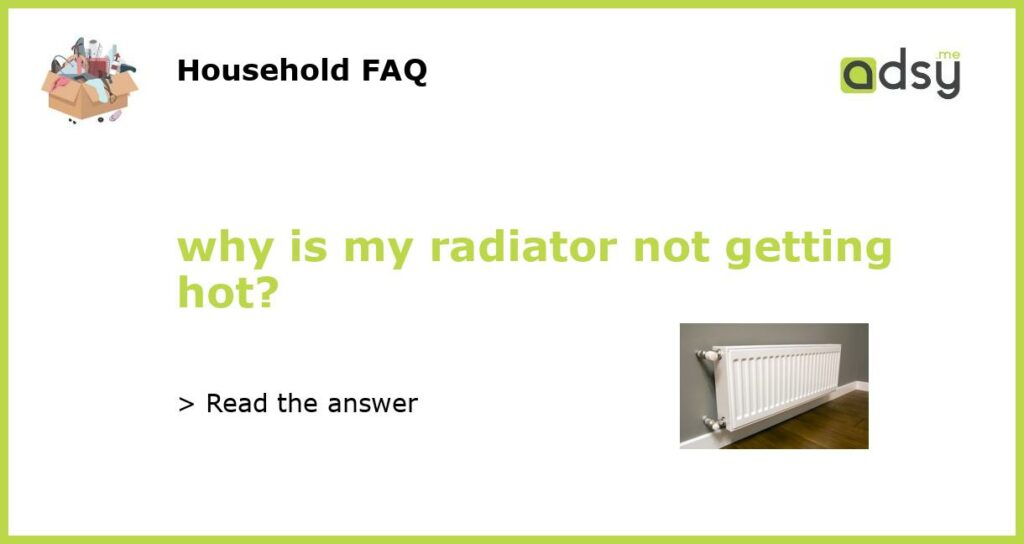Airlock in the Radiator
If your radiator is not getting hot, one possible reason could be an airlock in the system. This happens when air gets trapped inside the radiator or the surrounding pipework, preventing hot water from flowing effectively. To check if this is the case, feel the radiator and see if it is warm at the bottom but cold at the top. If the lower section feels warmer, it suggests there is air trapped inside.
To resolve this issue, you can try bleeding the radiator. Locate the bleed valve, which is typically found either at the top or the side of the radiator. Use a radiator key or a flat screwdriver to turn the valve anti-clockwise, releasing any trapped air. You may hear a hissing sound as the air escapes. Once the hissing stops and water starts to come out, tighten the valve back up. This should allow hot water to circulate properly, ensuring your radiator gets hot again.
Blocked or Restricted Flow
If your radiator is not getting hot despite bleeding it and there is no airlock, the issue may be a blocked or restricted flow of hot water. Over time, a build-up of sludge, rust, or debris can accumulate in the system, causing blockages and preventing the water from circulating effectively. These blockages can occur inside the radiator, the pipework, or even in the central heating system itself.
To address this issue, you may need to powerflush your central heating system. Powerflushing involves using a high-powered machine to pump a cleaning agent through the system, loosening and removing any sludge or debris that may be causing the blockages. This process helps to restore the flow of hot water and can significantly improve the efficiency of your radiators.
Faulty Thermostat or Control Valve
If your radiator is not getting hot, it could be due to a faulty thermostat or control valve. The thermostat regulates the temperature of the radiator by opening and closing the control valve, allowing hot water to flow in or preventing it from circulating. If the thermostat is faulty, it may not sense the temperature correctly and fail to open the valve, preventing hot water from entering the radiator.
To determine if the thermostat or control valve is the issue, you can try adjusting the temperature setting on the thermostat. If the radiator still does not get hot, you may need to replace the thermostat or seek professional help to diagnose and fix the issue. A qualified heating engineer will be able to inspect the thermostat and control valve, ensuring they are operating correctly and replacing them if necessary.
Insufficient Water Pressure
Another common reason for a radiator not getting hot is insufficient water pressure in the central heating system. Low water pressure can prevent hot water from adequately circulating through the radiators, resulting in them not heating up properly. You can check the water pressure gauge on your boiler to see if it is within the recommended range.
If the pressure is too low, you may need to repressurize the system. Most modern boilers have a filling loop or filling valve that allows you to top up the water pressure. Consult your boiler manual for specific instructions on how to do this. If you are unsure or uncomfortable doing it yourself, it is best to contact a professional heating engineer to assist you.
Other Potential Causes
There are some other potential causes for your radiator not getting hot that are worth considering. One possibility is a faulty pump in the central heating system. The pump is responsible for circulating the hot water through the system, so if it is not working correctly, the water may not reach the radiators.
Additionally, a blocked or malfunctioning motorized valve can also prevent hot water from reaching a specific radiator or zone in the house. Checking these components and ensuring they are functioning properly can help identify and resolve the issue.
If you have tried the above suggestions and your radiator is still not getting hot, it is recommended to seek the assistance of a qualified heating engineer. They will have the knowledge and expertise to diagnose and fix the problem, ensuring your radiator functions properly and efficiently.






